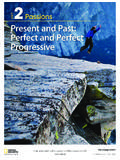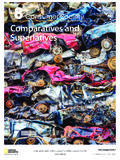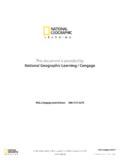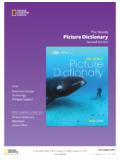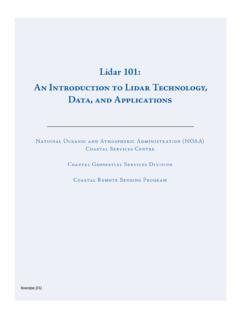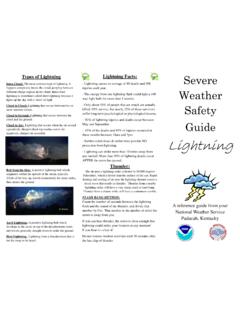Transcription of UNIT Passions Present and Past: Perfect and Perfect ...
1 UNIT. 2 Passions Present and Past: Perfect and Perfect Progressive 30 10/31/14 5:55 PM. Climbers BASE jump from Half Dome at Yosemite National Park, California. Lesson 1 Lesson 2 Lesson 3 Review the Grammar page 32 page 41 page 48 page 58. Present Perfect Present Perfect Past Perfect and Progressive Past Perfect Connect the and Present Progressive Grammar to Writing Perfect page 60 31. LESSON 1 Present Perfect EXPLORE. CD1-09. 1 READ the book review of Polar Obsession. What is Paul Nicklen's passion? Paul Nicklen's Polar Obsession For or most people, the Arctic and Antarctica are strange places that we know very little about. Paul Nicklen's collection of photographs and stories, Polar Obsession, offers an excellent introduction. Nicklen grew up on an island in Northern Canada, where he learned all about the outdoors from his Inuit1 neighbors.
2 Ever since that time, he has loved animals, cold weather, and adventure. As a photojournalist, Nicklen has spent a lot of time in icy polar waters. He has followed sea lions, dived with whales, and studied polar bears. One of the most exciting parts of the book covers Nicklen's unforgettable encounter with a leopard seal in Antarctica. As the photographs clearly show, leopard seals are very large up to 12 feet (4 meters) long and weighing over 1000 pounds (450 kilograms). They have huge, sharp teeth, and they move quickly through the water searching for food such as fish and penguins. Leopard seals can be dangerous, but this didn't stop Nicklen from trying to photograph one. When a huge seal approached his boat , Nicklen got into the water. He was shaking with fear, but much to his surprise the seal treated him gently.
3 She even tried to feed him! The seal brought him penguins to eat, and he photographed her. Nicklen says it was the most incredible experience that he has ever had as a photographer. In Polar Obsession, Nicklen shows us the beauty of the polar world and his passion for it. He also helps us to understand the importance of protecting it. 1. Inuit: indigenous people living in Arctic regions of Alaska, Canada, and Greenland Paul Nicklen meets a leopard seal. 32 Present and Past: Perfect and Perfect Progressive The leopard seal shows its sharp teeth. 2 CHECK. Write the letter of the phrase that completes each sentence. 1. Nicklen's neighbors taught him all about d . a. leopard seals can be dangerous 2. Nicklen has spent a lot of time working in . b. a leopard seal 3.
4 Nicklen's most incredible experience was with . c. its food 4. He was frightened because . d. the outdoors 5. The leopard seal offered Nicklen . e. icy polar waters 3 DISCOVER. Complete the exercises to learn about the grammar in this lesson. A Find these sentences in the book review from exercise 1. Write the missing words. 1. Nicklen grew up on an island in Northern Canada, where he learned all about the outdoors from his Inuit neighbors. 2. Ever since that time, he animals, cold weather, and adventure. 3. As a photojournalist, Nicklen a lot of time in icy polar waters. 4. He sea lions, with whales, and polar bears. 5. When a huge seal his boat , Nicklen into the water. B Look at the sentences in exercise A. Write the number of each sentence next to the phrase that best describes the time of the event.
5 1. Completed at a known time in the past: 1 , 2. Completed at an unknown time in the past: , 3. Started in the past and continues to the Present : Unit 2 Lesson 1 33. LEARN. Present Perfect statements Subject + Have/Has ( Not ) + Past Participle Affirmative I have visited many countries. Negative Tom hasn't seen the photos of my trip. Questions answers ( Wh-) + Have/Has + Subject + Past Participle Have you visited the Arctic? No, I haven't. Yes/No Has Paul taken many photos? Yes, he has. What have you heard? Nothing. Why? Wh- Who has he met? An explorer. Who/What + Has + Past Participle Who or What Who has completed the assignment? Only one student (has). as Subject What has happened? Nothing, yet. 1. Use the Present Perfect for lived in Canada a. actions or events that started in the a.
6 Past and continue in the Present ; now We have lived in Canada for a long time. travel to Antarctica b. an action or event that happened at b. an indefinite time in the past; now He has traveled to Antarctica. tornado hit c. recently completed actions or events; c. just is common with this use of the now Present Perfect . A tornado has just hit downtown. 2. Use the Present Perfect to connect the She has taught school for 20 years. Now she wants to past to the Present . write a book. 3. Already, always, ever, and never often The employees have already left work. It's late. come before the past participle. Have you ever seen a kangaroo? Yet and so far are common at the end of She hasn't called yet. I expect the call soon. a sentence. The speeches have been good so far.
7 There's one more. 34 Present and Past: Perfect and Perfect Progressive 4 Complete the conversations with the words in parentheses. Use the Present Perfect . Conversation 1. Bev: How is your class going? Ken: Great. (1) I've learned (I / learn) a lot about the Arctic and polar explorers. Bev: That sounds interesting. (2) (you / see). that book by Paul Nicklen? Ken: No, (3) . Who is he? (4). (I / never / hear) of him. Bev: He's a photographer. (5) (he / live) and (6). (work) in polar climates for many years. (7) (he / take). amazing photos of all kinds of animals. reaL engLisH. Do not repeat have/has between Present Perfect verbs connected by and. He has followed sea lions and studied polar bears. Conversation 2. Lee: (8) (Mr. Chin / just / cancel). today's class.
8 Jen: Really? (9) (he / reschedule) it yet? Lee: No, not yet. But I heard the class might be on Saturday. Jen: Is that possible? (10) (you / ever / have). a class on a Saturday? 5 ANALYZE THE GRAMMAR. Work with a partner. Look at each answer you wrote in exercise 4. Then write the number of each answer next to the correct description below. Refer to chart 1. Started in the past and continues to the Present : , 2. Happened at an indefinite time in the past: 1 , , , , , 3. Happened recently: , Present Perfect with For and Since Use for or since with actions or events that graduated worked at store started in the past and continue to the Present . May now/December a. Use for + an amount of time a. Jo has worked at this store for six months. (number of days, months.)
9 B. Use since + a specific past time b. He hasn't been a student since May. (exact date, time, month, ..). c. Use a past time clause with since. c. I've known him since he graduated. Unit 2 Lesson 1 35. 6 Complete the sentences. Use the Present Perfect form of the verb in parentheses. Then write since or for. 1. People in many countries enjoy ice swimming. It became popular several decades ago. People have enjoyed (enjoy) ice swimming for several decades. 2. The first Canadian Polar Bear Swim was in 1920. It is still an annual event. The Canadian Polar Bear Swim (be) an annual event 1920. 3. Our town had its first New Year's Day swim in 2010. Our town still has this swim. Our town (have) a New Year's Day swim many years. 4. I wanted to swim with the Polar Bears when I was 13.
10 I'm 23 and I still want to do it. I (want) to swim with the Polar Bears ten years. 5. The only sport my brother does is winter swimming. He (not play). any other sport he was a teenager. 6. My father doesn't participate anymore. His last winter swim was four years ago. My father (not participate) four years. 7. My cousin always jumps into the water first. He did this last year and the year before. My cousin (always / jump) into the water first he joined the Polar Bears. 8. We all love winter swimming. We loved our first experience, and we still love it. We (love) winter swimming we first tried it. Present Perfect and Simple Past 1. The Present Perfect is used for a. actions or events that started in the past a. Mary is our math teacher. She has taught and continue to the Present ; here for five years.
